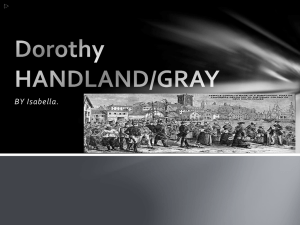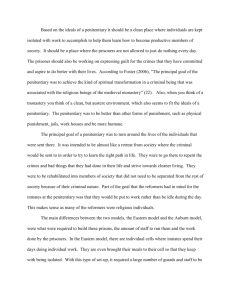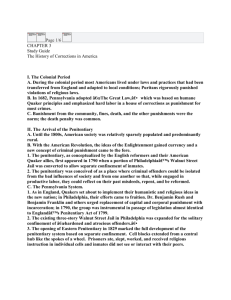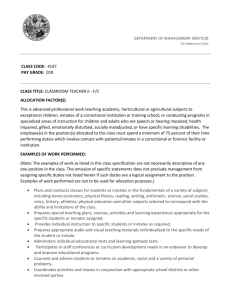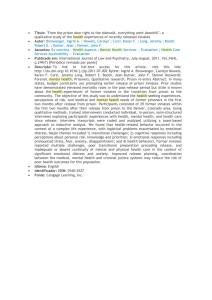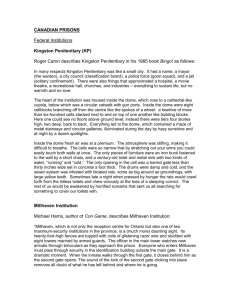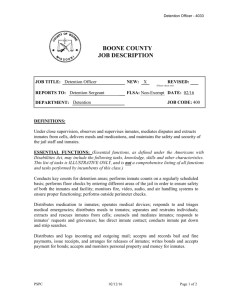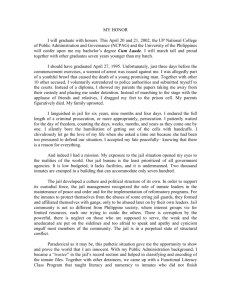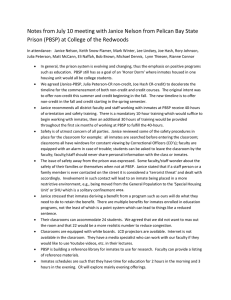Race, Ethnicity, and Gender at Eastern State
advertisement
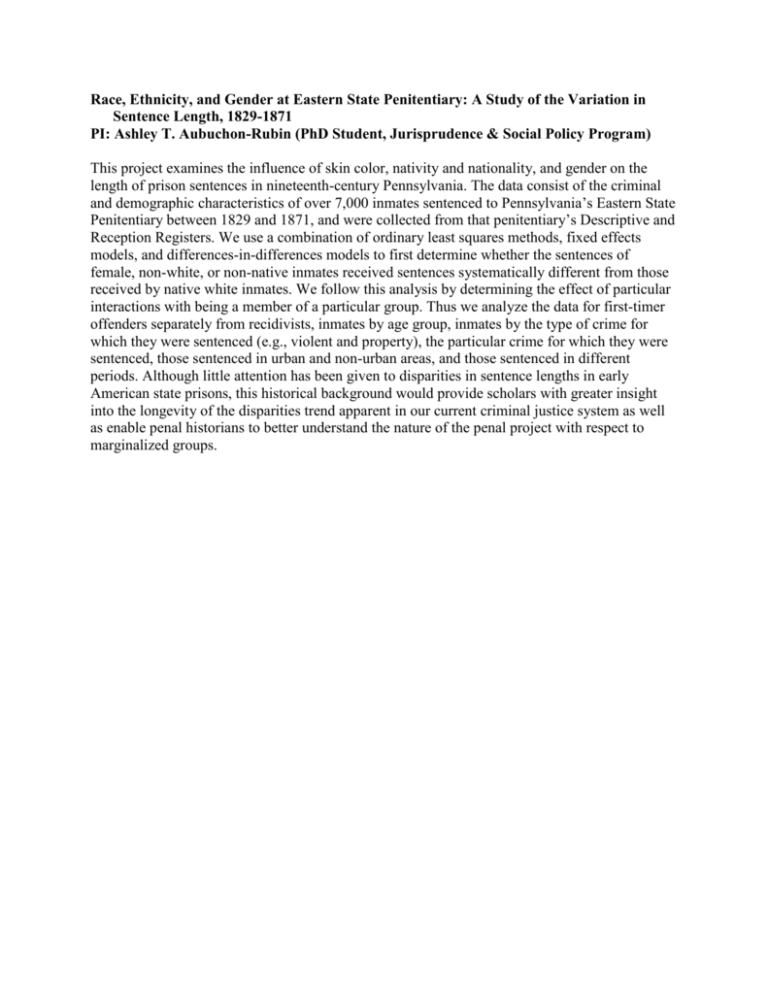
Race, Ethnicity, and Gender at Eastern State Penitentiary: A Study of the Variation in Sentence Length, 1829-1871 PI: Ashley T. Aubuchon-Rubin (PhD Student, Jurisprudence & Social Policy Program) This project examines the influence of skin color, nativity and nationality, and gender on the length of prison sentences in nineteenth-century Pennsylvania. The data consist of the criminal and demographic characteristics of over 7,000 inmates sentenced to Pennsylvania’s Eastern State Penitentiary between 1829 and 1871, and were collected from that penitentiary’s Descriptive and Reception Registers. We use a combination of ordinary least squares methods, fixed effects models, and differences-in-differences models to first determine whether the sentences of female, non-white, or non-native inmates received sentences systematically different from those received by native white inmates. We follow this analysis by determining the effect of particular interactions with being a member of a particular group. Thus we analyze the data for first-timer offenders separately from recidivists, inmates by age group, inmates by the type of crime for which they were sentenced (e.g., violent and property), the particular crime for which they were sentenced, those sentenced in urban and non-urban areas, and those sentenced in different periods. Although little attention has been given to disparities in sentence lengths in early American state prisons, this historical background would provide scholars with greater insight into the longevity of the disparities trend apparent in our current criminal justice system as well as enable penal historians to better understand the nature of the penal project with respect to marginalized groups.
